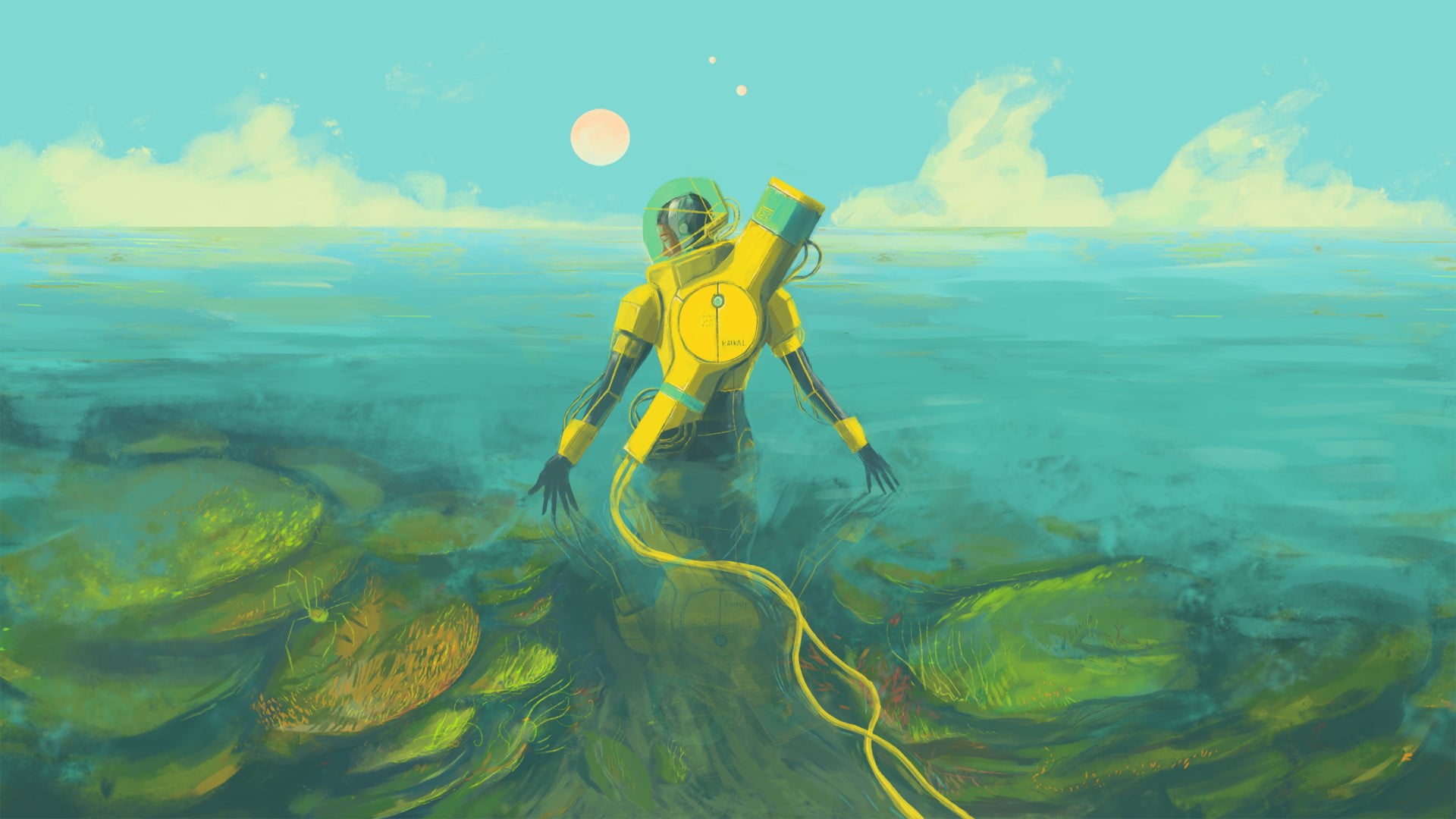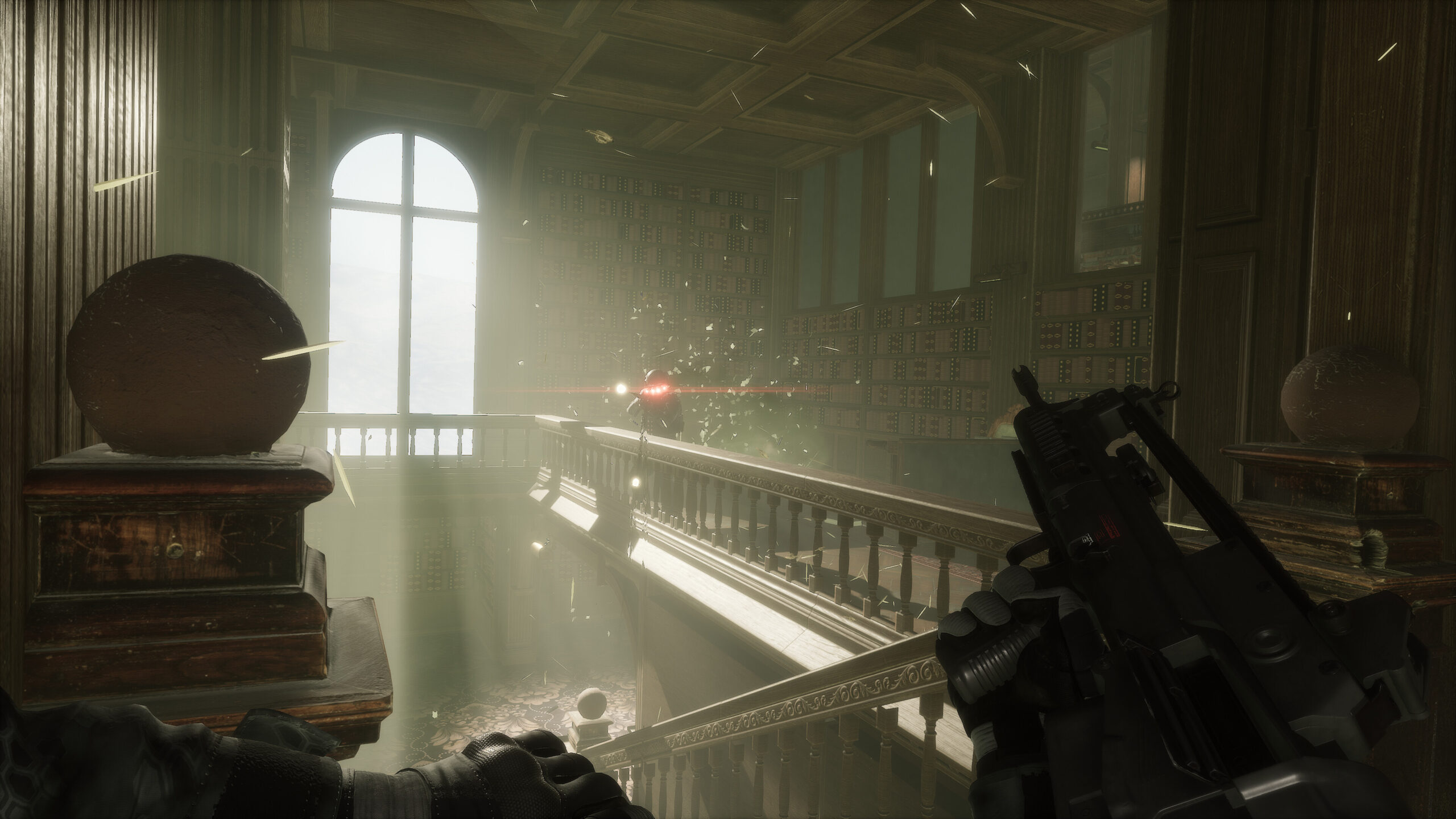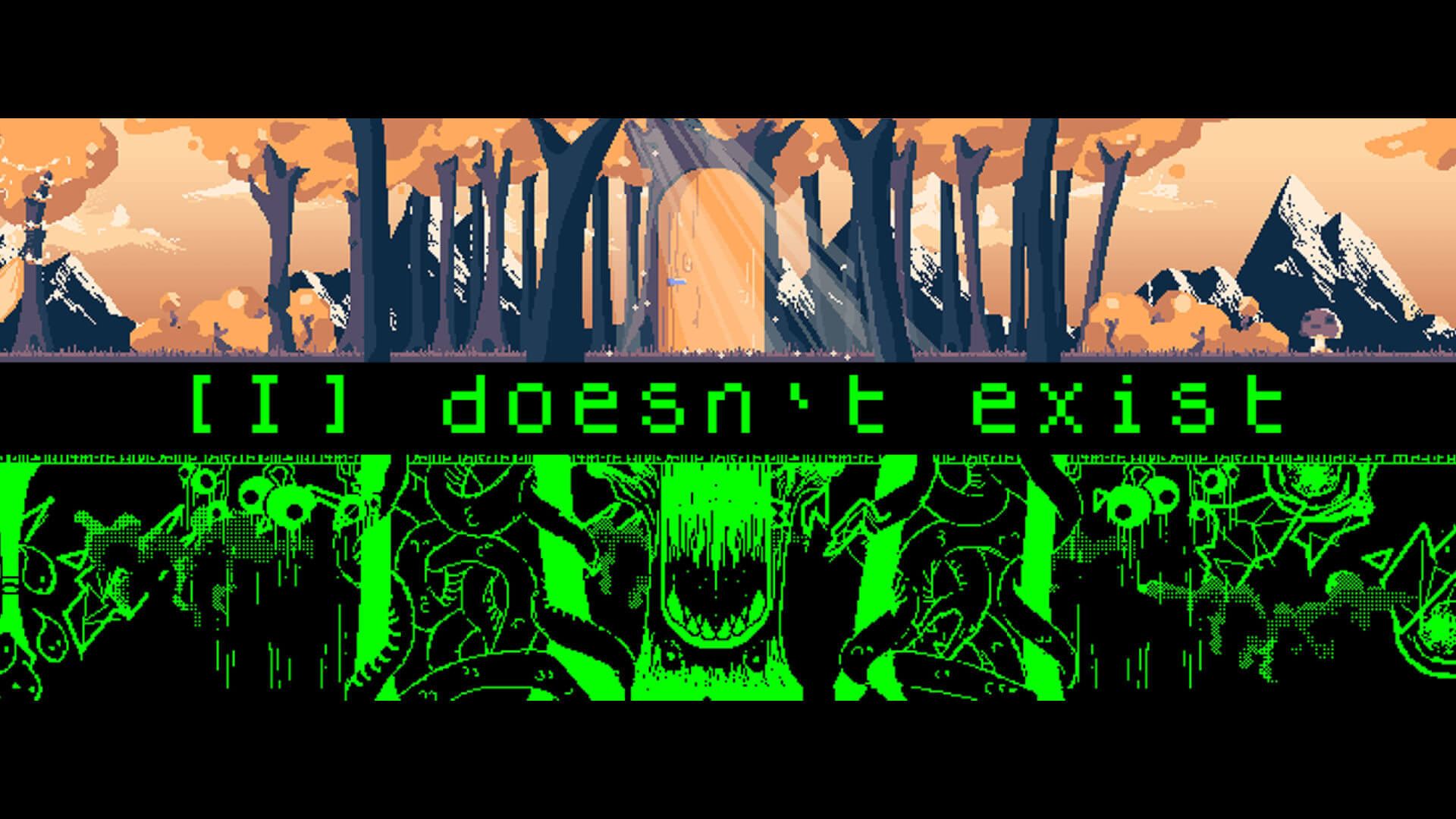
In Other Waters Review- unfortunately naut for me
Developed by Jump Over the Age
Produced by by Fellow Traveller Games
Available on PC, Nintendo Switch
MSRP $14.99
Text based games were before my time. But the appeal of a game that uses words to create words is certainly timeless. Not every game needs gameplay, as a strong narrative is more compelling than anything else. However, without good storytelling, it all falls apart. The immersion is broken and the player is acutely aware they are looking at text on a screen and nothing else. In Other Waters more or less suffers from that. There certainly is a narrative here, maybe one that can even be described as strong. But it is unfortunately not enough to overcome the clunky, immersion breaking gameplay, and you remember you’re just looking at a virtual dashboard.
In Other Waters takes place in the ocean of an alien world. You play as an unusual AI within a malfunctioning mechanical diving suit. Ellery Vas, your passenger (wearer? I don’t even know what living clothes would refer to their inhabitants as) is a xenobiologist who is for some reason unable to pilot the dive suit, and must rely on you to travel and perform actions (which to me sounds like a claustrophobic nightmare, a living hell. Stuck in one position, unable to move, at the mercy of an AI. Jesus Christ). You must work together to help her not only survive, but also catalogue the life you find and find out what happened to the mysterious explorer(s?) that came before you.

The larger setting of In Other Waters is during a space age of humanity. Having consumed the earth’s resources and turned the oceans toxic and unliveable, the wealthy have fled to the stars in pursuit of other planets to live. This planet in which you and Ellery find yourselves is the first planet with alien life. There are themes of overconsumption, occasionally bordering on the Malthusian. But generally it is about the inherent contradiction between capitalism and environmentalism. Humans and the environment are not compatible, indeed we were for 100,000 years. And yet, for no reason other than the incomprehensible luxury of the few wealthiest people, humanity marches towards its own death. Like yeast cells giddily eating up sugars, turning it into alcohol which kills them, so too do humans overconsume resources and turn them into toxins.
But enough about the impending ecological apocalypse. I appreciate what In Other Waters is doing. This is one of the few games that imagines alien life as in its earliest stages. Primordial seaweed, goofy sea bugs like trilobites, stuff like that. Perfect for a game about a biologist. While you guide Ellery through the reefs, she is cataloging life forms and making sense of how the creatures work together in this ecosystem. It’s certainly a unique concept. The only comparisons I can think of are Endless Ocean or the shallows in Subnautica; a no-stress experience where you just lazily cruise the surf looking for crabs to scan.

And yet it is certainly missing something that Subnautica and Endless Ocean have, and that is obviously visuals. In Other Waters takes place 100% in a HUD. Other than a topographic map and yellow dots that represent life, everything described is going to come from your own imagination. I suppose a HUD based game is the natural progression from a text based game, but all the same I think it could have used some actual images. Ellery will give some brief descriptions of the flora and fauna (“we’re gonna call those shimmer plants, because they’re plants that shimmer”) and once you reach the research station you can see diagrams of discovered species, however that wasn’t enough to keep me interested.
I’m not inherently against the lack of images. I might have even applauded In Other Waters for trying. The reason I’m annoyed with the lack of pictures is that the pictures already exist. The kickstarter page for In Other Waters has an artbook, with detailed paintings and diagrams. This seems like such a backwards choice, to spend probably thousands of dollars on art that does not end up in the game. Seeing just a handful of the paintings of the environments or creatures would have made the experience of In Other Waters so much more vivid and intriguing. A picture is worth a thousand words, and the text box is limited to probably 15.

Even without images, the visuals of In Other Waters are still pretty good. The beginning has a nice soft turquoise and yellow color palette, which changes as you progress through the game, usually to darker blues as you go deeper. The diagrams and buttons on the HUD have a futuristic almost art deco style, the font is good, and the menus are fine. Ok look there’s really not much to say. It’s a game without visuals. Look at the screenshots and you’ll see. Like I said, for the most part the visuals are going to come from your own imagination. What is on screen is an extremely boiled down representation of your environment, as much fat trimmed as possible. In Other Waters is not a visual game.
It is, however, very much an audio based game. The audio may not entirely make up for the lack of visuals in my opinion, but it certainly gets close. In Other Waters has incredible sound design. It’s about what you’d expect—soft, dreamlike ambient synth music with a lot of bubble sounds—and yet, still amazing. Whatever my description is wont do it justice. Watch the launch trailer to get a listen for yourself. Or better yet, check out the artist’s SoundCloud here.

The gameplay of In Other Waters is just not that good. I’m not against a slow paced game, but there are some significant problems with how the gameplay works here. For one, movement is not well designed. You need to press a button to scan the area, then click on a destination, then switch from the scanner mode to the move mode, and then finally move. And the predetermined points from which you can move are so tiny that you are doing this dance constantly. I think the idea was that you would stop and read the description of whatever area you are going to, but since most of the game is linear, there is no reason to check what kind of rocks are nearby. Having free movement would have made In Other Waters a lot more enjoyable for me. The movement is just tedious.
There are some other mechanics that involve gathering samples of various creatures. You may need to collect some spores from one plant that cause another to recede in order to progress. These are the sort of puzzles you can expect to find playing In Other Waters. Collecting samples and shuffling them around sounds good in theory, but since each creature is represented by identical yellow dots, trying to figure out what each requires ended in me just throwing random samples onto random plants until I got it right. Without any visual representation of creatures or easily accessible bestiary (there is a log of discovered species at the base, but you can’t bring it with you), trying to solve these puzzles was a chore.

The final mechanic, and I almost forgot about this because of how inconsequential it was, is the dialogue. Ellery talks, as I previously stated, but she occasionally asks for your input. You may answer yes and no, but it really doesn’t matter. Functionally, Ellery is talking to herself. I think the In Other Waters developers should have either gone more in depth with the dialogue options or simply taken the AI component out altogether. It adds the barest minimum RPG elements and more often than not is just distracting.
All in all, I think In Other Waters achieved most of what it was attempting. It is certainly unique, and I think a lot of people will really enjoy the experience. For all my bashing on the lack of visuals, there were some points where I too was getting into it. This is a game that had a lot of and came very close to reaching their potential. But the mechanics are just too obtuse to keep me interested. I appreciate the creativity of Jump Over the Age and I look forward to their future projects, but In Other Waters was not for me.
Summary
I really wanted to enjoy it. In Other Waters has an interesting concept, but unfortunately, the gameplay is too slow and clunky for me to enjoy.
Overall
2-
Game





Christian
Thank you for the review – I really enjoyed reading it (more than playing the actual game) and agree 100%.